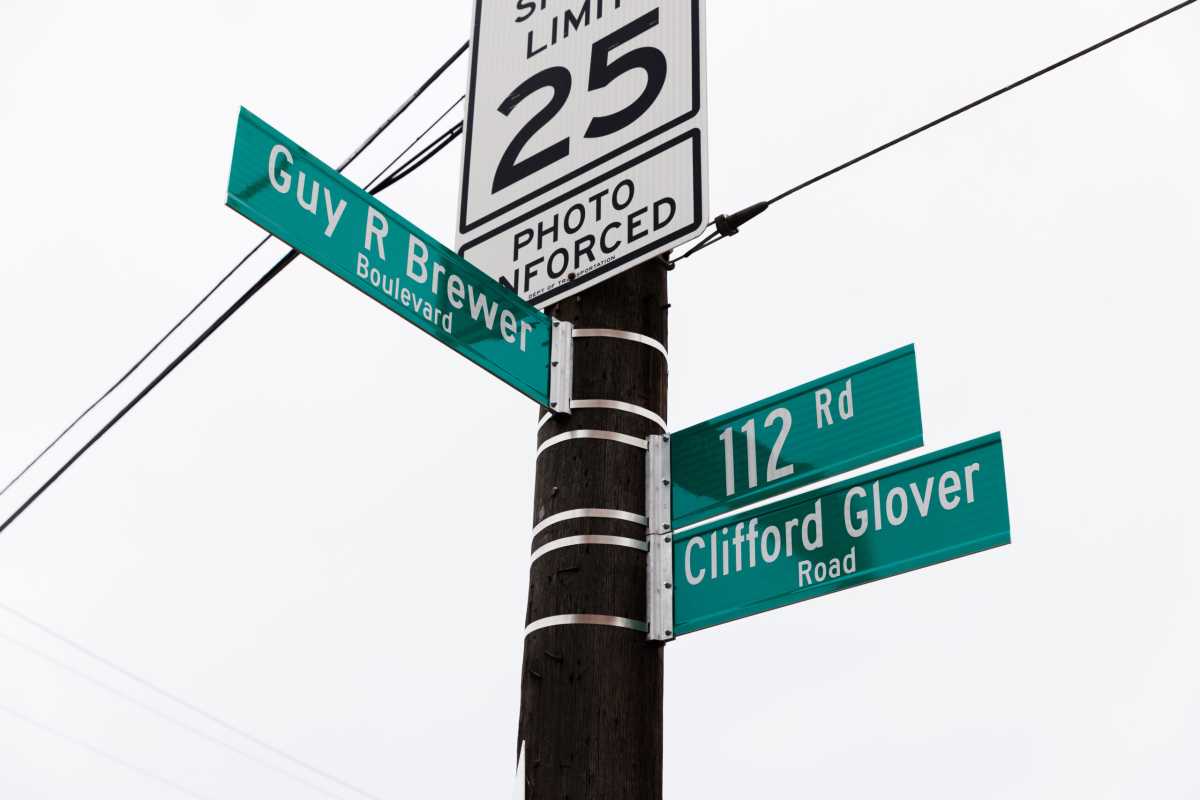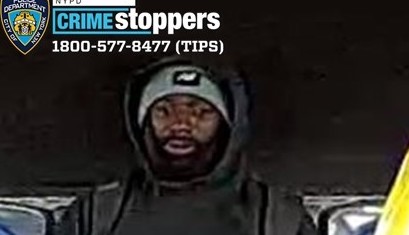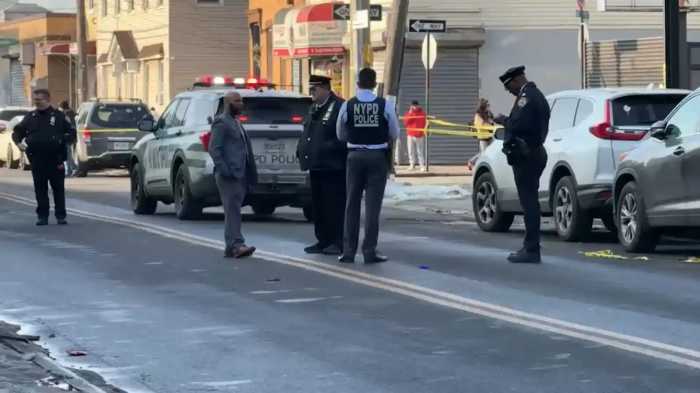Rarely does a street co-naming ceremony provide a cathartic moment for some of the city’s most potent leaders, but that is precisely what occurred in Southeast Queens on Friday.
Mayor Eric Adams and City Council Speaker Adrienne Adams delivered remarks at Calvary Baptist Church in South Jamaica before political leaders, clergy, criminal justice reformers, and members of Clifford Glover’s family as they unveiled a new street sign at the intersection of Guy R. Brewer Boulevard and 112th Road where, a half-century earlier, a 10-year-old Black boy was shot and killed by a white NYPD undercover officer.
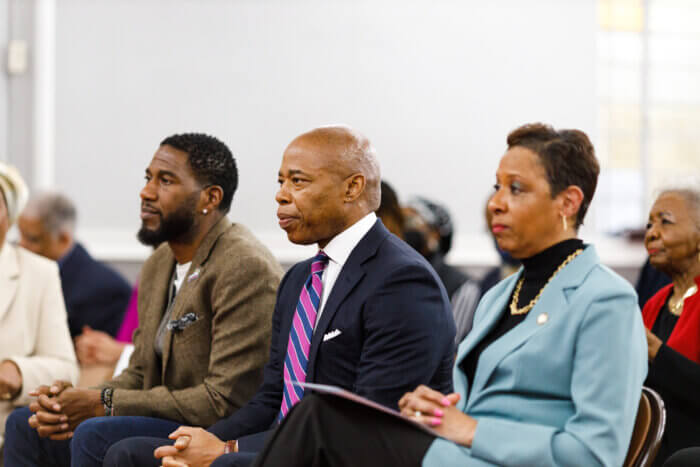
The 4th grader, known to his family and friends as “Cliffie,” was walking with his stepfather, Add Armstead, near the intersection on the morning of April 28, 1973, when an unmarked car pulled up alongside them, and two plainclothes officers looking for robbery suspects emerged from the vehicle. The 4’11” youngster, who weighed less than 100 pounds, took off running, and Officer Thomas Shea fired a shot that struck Glover in his back.
Shea claimed later that the 10-year-old had pointed a handgun at him. Investigators canvassed the area following the fatal shooting and never found a gun. Glover became the youngest child ever killed by an NYPD officer, and Shea would stand trial for murder a year later before a jury found him not guilty. Though the NYPD would later fire Shea, his acquittal set off days of violent protests across South Jamaica that still reverberate across Southeast Queens today.
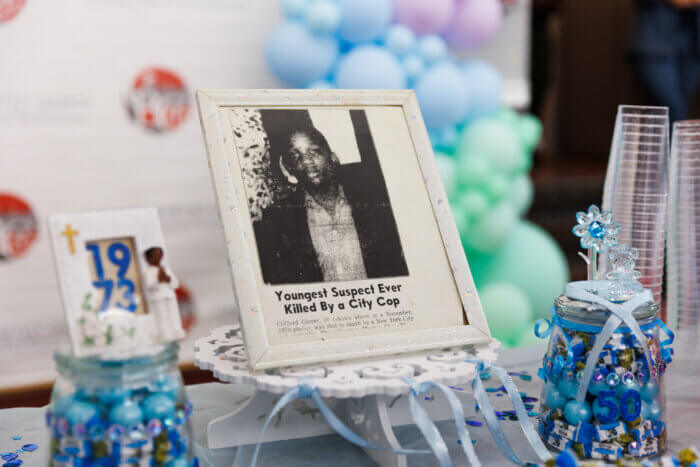
City Council Speaker Adrienne Adams grew up in nearby Hollis and remembered how the community came together “in outrage and heartache.” The speaker sponsored the legislation to co-name the street corner “to ensure that Clifford’s name and story are forever etched in the history of New York City.”
She spoke about how the demands for justice reverberated through Southeast Queens and across the country.
“Yet still today, Black families and communities nationwide continue to be devastated by police violence. Accountability is essential to public safety and trust,” Adams said. “That’s why, throughout my time on the Council, I’ve fought hard for families seeking justice for their loved ones. As we dedicate this street in Clifford Glover’s memory, may his life and legacy live on in our fights for justice and accountability so that we can bring about the better, kinder world that all of us and future generations deserve.”
Mayor Eric Adams came to Calvary Baptist Church late due to a fatal house fire that killed a mother and her two children in Brooklyn. He comforted the family’s neighbors and firefighters at the scene before making his way to South Jamaica, where he grew up.
“No matter what I had to do today, I had to come here to close this chapter in my life. I was devastated when a 10-year-old boy was shot when I was 12,” the mayor said.
He recalled the day he was playing baseball at the South Jamaica Houses against a team of white kids who were bussed in from Long Island when Officer Shea was found not guilty. Adams said a large crowd of about a hundred people came with metal pipes and bats to attack the white ball players. After that day, his mother decided he was no longer allowed to cross Guy R. Brewer Boulevard.
“I am mayor because of Clifford Glover,” Adams said.
He then emphasized the number of Black elected leaders at the city, state, and federal levels now representing New York City.
“We’re now at this time where we have a Black speaker, a Black mayor, a Black public advocate, three DAs of color. We have the leader of the Assembly, the leader of the Senate in New York State that are of color. We have Hakeem Jeffries, who is of color; we have Letitia James, who is of color,” Adams said. “If you connect the dots going backward, this moment started with a 10-year-old boy. We lost him physically, but he set in motion the spiritual journey that we are on right now.”
Williams was born three years after “Cliffie” was gunned down. Williams went on to represent Brooklyn in the City Council. In 2019, he won citywide elected office when he became the Public Advocate.
“In the 50 years since Clifford Glover was killed, the same story seems to be told over and over again,” Williams told the crowd. “When we lift up his name today to mark this street, this neighborhood, this community, we also have to lift up his memory. We have to lift up who he was, who people remembered him to be, his life and we have to take that memory and the more recent memories of pain and failed accountability and we have to change it. We have to get accountability for the lives lost and, most importantly, prevent future lives from being taken at all.”
Reverend Herbert Daughtry comforted Glover’s family members at Calvary Baptist Church, just like he supported them after the youngster was killed 50 years earlier. It was Daughtry who convinced a young Eric Adams to join the NYPD to change the culture of the police force from the inside. Herbert’s wife of 60 years, Dr. Karen Daughtry, delivered remarks about how meaningful it will be for future generations looking to see the street sign for Clifford Glover Road.
Darlene Armstead spoke on behalf of her family and was overcome with emotion recalling how the shooting not only took her brother’s life but ruined her family forever.
“There was so much pain that I wouldn’t wish on anyone,” Armstead said.
PS40Q Principal Alison Banker presented Armstead with the diploma her brother never received, and her demeanor changed.
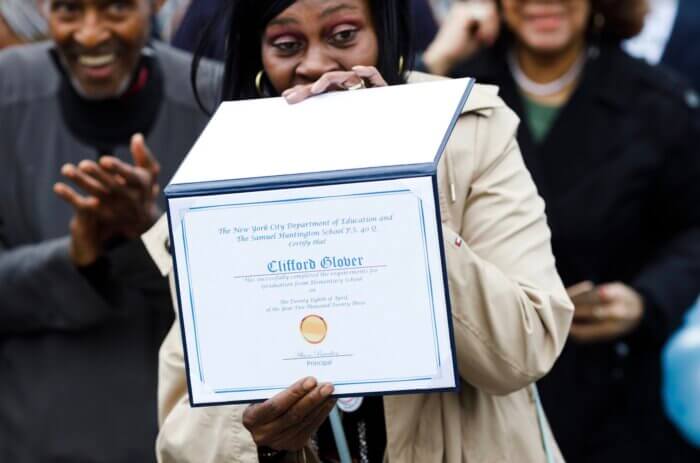
“When that sign came down, and they gave me this [diploma], everything that was so tight with anger kind of shattered,” Armstead said. “He’s probably smiling down on us right now.”
Additional reporting by Paul Frangipane.

